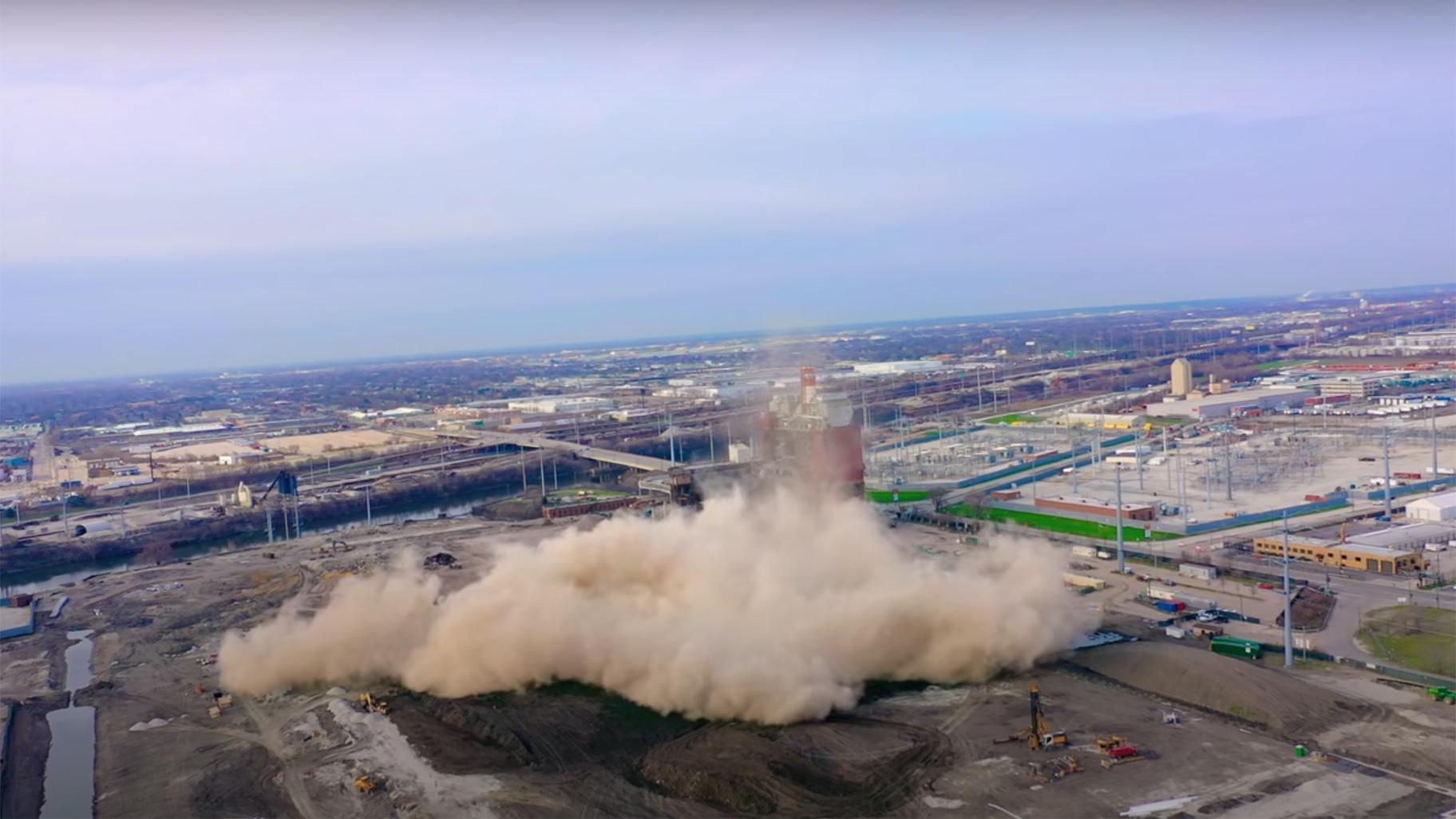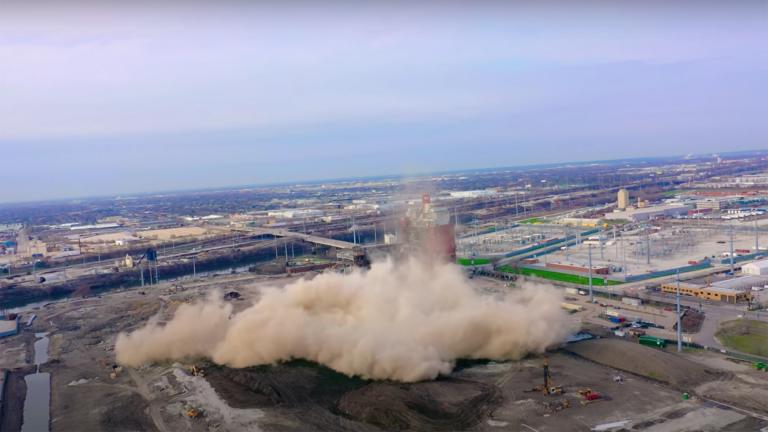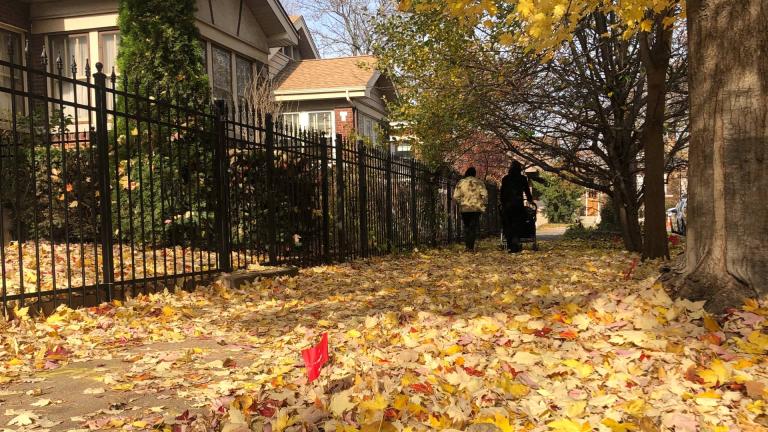 A still image from a video taken of the demolition of the Crawford Coal Plant smokestack, April 11, 2020. (Alejandro Reyes / YouTube)
A still image from a video taken of the demolition of the Crawford Coal Plant smokestack, April 11, 2020. (Alejandro Reyes / YouTube)
Mayor Lori Lightfoot vowed on Friday to hold Hilco Redevelopment Partners accountable for botching the demolition of the smokestack at the former Crawford Power Plant, sending a plume of dust over six blocks of homes in Little Village.
Had Hilco doused the area around the smokestack with water before the implosion, the plume would not have enveloped the surrounding neighborhood, Lightfoot said.
Instead, the company “utterly failed,” Lightfoot said. The implosion was “outrageous and unacceptable,” she added.
The city issued 16 citations to Hilco on Friday, which come with $68,000 in fines, the mayor’s office announced.
“We will continue to fully cooperate with the City of Chicago and will be implementing all of the remediation efforts that have been requested,” said Hilco Redevelopment Partners CEO Roberto Perez. “The health, safety and welfare of the Little Village community is of paramount concern to us as we work toward completing this project.”
Lightfoot said she “hears and understands" the anger of Little Village residents, who have called the dust cloud caused by the implosion an example of the environmental racism South and West side communities have been forced to deal with for decades.
"I'm angry, too," Lightfoot said, calling the demolition during a respiratory pandemic “botched.”
“The dust cloud, the drifting of that cloud over the Little Village community, is utterly and entirely the fault” of Hilco and its partners, Lightfoot said.
A new city website will publish information about the city’s response.
However, Neighbors for Environmental Justice called the fines “not even a slap on the wrist,” given the fact that city officials endorsed an incentive for Hilco to turn the defunct coal plants into a distribution center that will save the company $19.8 million on its property tax bill during the next 12 years.
“This is a disgrace on behalf of Chicago government,” the group tweeted.
While Lightfoot laid the blame for the debacle directly on Hilco and its general contractors, MCM Management Corp. and Controlled Demolition, she acknowledged that the city’s process for approving implosions was insufficient.
Lightfoot ordered a six-month moratorium on implosions, and directed the departments of buildings and health to develop a new permit for demolitions that call for a structure to be imploded with explosives.
Lightfoot said she was surprised to learn that the city’s code treats all demolitions the same, regardless of the method. The last implosion in Chicago took place in 2005, the mayor said.
In addition, companies will no longer be allowed to certify that they removed harmful substances — such as asbestos — before being allowed to proceed with the demolition, Lightfoot said. Instead, a city senior environmental inspector will be assigned to assess firms’ compliance.
“We will no longer operate on the honor system,” Lightfoot said.
The city will also create a rapid response team to respond to demolitions that go awry, Lightfoot said.
Initial results from tests conducted on dust and air samples taken after the implosion of the smokestack found no asbestos, said Chicago Department of Public Health Commissioner Dr. Allison Arwady.
City officials are also reviewing a report submitted by Hilco about the events surrounding the implosion.
City officials have also asked Hilco officials to expand street sweeping operations to a wider area around the former plant, and give every resident a high-quality furnace filter.
Contact Heather Cherone: @HeatherCherone | (773) 569-1863 | [email protected]





